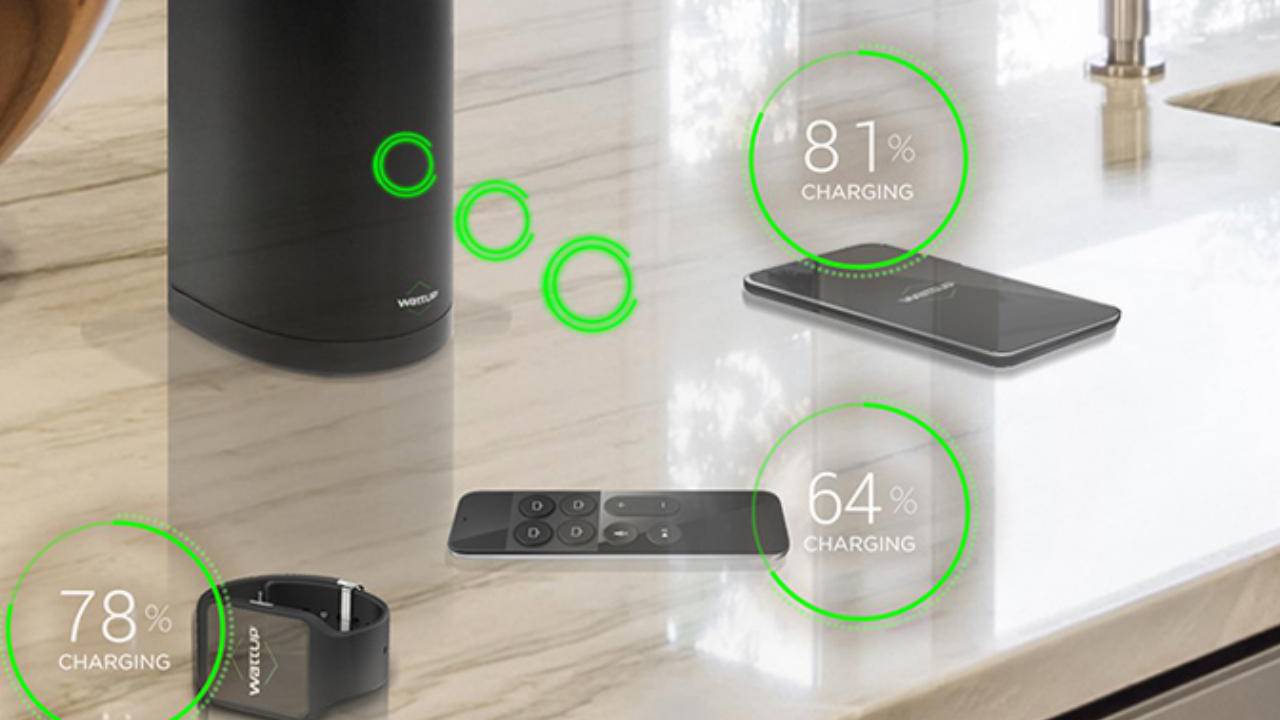
Author Archive


At-Home DNA Tests and Growing Privacy Concerns
Direct to consumer genetic testing companies, such as 23andMe, AncestryDNA, MyHeritage DNA, and Living DNA, have convinced millions of people to place their genetic material, typically a saliva sample, in an envelope and send it for analysis. In 2017, the genetic testing market was worth approximately $99 million in 2017, and it’s estimated that it will be worth $310 by 2022.However, not everyone is as thrilled about the growing popularity of direct to consumer genetic testing as the companies that profit from it. “The key thing about your genetic data…it is uniquely yours. It identifies you, so if you are going to entrust it to a company, you should try to understand what the consequences are,” said Jennifer King, director of consumer privacy at Stanford Law School’s Center for Internet and Society.
While genetic testing companies have plenty good reasons to protect the genetic data of their customers—their business depends on consumer trust, after all—cybercriminals are experts at finding ways how to circumvent even the most state-of-the-art cyber defenses.
This was demonstrated by an unknown hacker on October 26, 2017, which was the date when MyHeritage, an online genealogy service that was first developed and popularized by the Israeli company MyHeritage in 2003, was breached, leaking email addresses and hashed passwords of more than 92 million users who signed up for the services until the date of the breach.
The company didn’t disclose the breach until June 4, 2018, and it did so only after a security researcher reported finding a file that contained email addresses and hashed passwords on a private server. “Our Information Security Team received the file from the security researcher, reviewed it, and confirmed that its contents originated from MyHeritage and included all the email addresses of users who signed up to MyHeritage up to October 26, 2017, and their hashed passwords,” said MyHeritage in its statement.
“We determined that the file was legitimate and included the email addresses and hashed passwords of 92,283,889 users who had signed up to MyHeritage up to and including Oct 26, 2017 which is the date of the breach. MyHeritage does not store user passwords, but rather a one-way hash of each password, in which the hash key differs for each customer. This means that anyone gaining access to the hashed passwords does not have the actual passwords.”
The breach of MyHeritage has served as a powerful reminder of the fact that consumers are not focusing on privacy nearly as much as they should be. The next data breach could be far more serious, and there are many ways how genetic data could be exploited. For instance, insurance companies could use it to deny health insurance coverage for consumers with genetic predispositions to certain medical conditions.
To prevent this from happening, genetic testing companies must ensure that a data breach similar to the one that affected MyHeritage won’t happen again, and consumers must educate themselves on the privacy implications of sharing their genetic data with genetic testing companies and their partners.

Electric Scooters Are Everywhere—but Why?
On March 29, 2018, San Francisco was invaded. Not by a foreign militia or creatures from outer space, but electric scooters. It wasn’t the first invasion of this kind. Electric scooters have already conquered just about every sidewalk in China, and it won’t take long before there isn’t any major city left where pedestrians still rule the sidewalk. While many people welcome this new method of transportation, not everyone shares the same enthusiasm about it, claiming that electric scooters shouldn’t be allowed to roam the streets at all. To understand who’s right and who’s wrong, it’s important to know what electric scooters are, where they’ve come from, and what they’re trying to accomplish.What Are Electric Scooters?
The electric scooters in question aren’t the Razor kick scooters most millennials fondly remember from their childhood, but they are not too different either. Just imagine a rugged Razor kick scooter with an electric motor and battery. Most electric scooters weigh around 25 pounds (11 kg), and they’re typically marketed towards commuters, as opposed to children. If this sounds familiar, that’s probably because you remember the Segway, a two-wheeled, self-balancing personal transporter launched in 2002. Before it turned into one of the biggest tech failures of the last decade, Segway wanted to revolutionize personal transportation. The reasons why Segway failed are numerous, but its initial price of $4,950, awkward nature, and terrible public image all had something to do with it. But electric scooters are different. Very different. Their retail price ranges between $100 and $500, and there’s hardly anything awkward or embarrassing about riding them. Most electric scooters you see on the streets are various rebranded versions of the Xiaomi M365, a wildly popular electric scooter with minimal design, integrated kickstand, built-in LED headlight, and a top speed of 15.5 mph (25 km/h). The most important difference between the stock version of the Xiaomi M365 everyone can order online, and the rebranded versions used by electric scooter companies is the software that controls everything and allows you to pay for a ride using your smartphone. “Battery-powered scooters have been available for years, but only recently have they been outfitted with GPS trackers and wireless connectivity and arranged into on-demand fleets. These scooters are limited to 15 miles per hour, but that is still zippy enough to put a satisfying whoosh in your hair,” said Kevin Roose, a columnist for Business Day and a writer-at-large for The New York Times Magazine. “And when you’re done riding, just park it anywhere, choose ‘end ride’ on your app, take a photo to help the next rider find it and walk away.” The users don’t have to worry about charging—that’s the job of “juicers,” people who pick up electric scooters that need charging, plug them in at home, and return them back for use when they’re charged. “For many people, it’s a fun way to make extra money,” said Colin McMahon, who leads the charging program of a major electric scooter company. Depending on how low the battery is, charging one nets a juicer between $9 and $12, making it a profitable side income. Though this article is focused on electric scooters, eBikes are another mode of transportation hitting cities across the nation from many of the same companies offering electric scooters, just in a larger traditional bicycle form. eBikes typically have larger battery capacity (increasing range) and increased top speeds of 20+ miles per hour. The eBike revolution is in full effect and I plan to write another article dedicated to this topic alone. If you are interested in learning more and falling down the rabbit hole of eBikes visit Electric Bike Review for more information.First/Last Mile Problem
Electric scooters are often touted as the best solution to the first/last mile problem, the symbolic distance between a commuter’s transit stop and their home or work. According to public transit consultant Jarrett Walker, most people in the United States claim to be comfortable walking less than ¼ mile. But because public transit is designed with the average person in mind, many people have to walk much longer distance to get from their home to the nearest transit stop and from the transit stop to their home or work. In many cases, commuters simply rule out public transit altogether and commute by car instead. The environmental impact of commuting by car is massive since the average midsize car produces around 2.6 tons of carbon dioxide emissions annually. “Even though a single transit vehicle can use more fuel than a private vehicle does, the average amount of energy used per passenger is far less than a single-occupancy vehicle, and using public transportation can help individuals lower their personal carbon footprint and reduce their transportation-related emissions,” said National Express Transit (NEXT), a worldwide leader in fixed route and paratransit solutions. “By taking up less space and reducing gridlock, buses and other public transit options can also enable more efficient traffic flows for all vehicles, which in turn helps to reduce fuel waste and emissions that come from sitting in traffic jams.” Electric scooters solve the first/last mile problem by providing a convenient way how commuters can reach the nearest transit stop and get to work without breaking a sweat. Since electric scooters encourage the use of public transit, they are beneficial for the environment even though they require regular charging. “Today, 40 percent of car trips are less than two miles long,” said Travis VanderZanden, the founder and current CEO of Bird, a scooter sharing service. “Our goal is to replace as many of those trips as possible so we can get cars off the road and curb traffic and greenhouse gas emissions.”Major Players
There are several electric scooter companies competing for a spot on your smartphone’s home screen. The current leaders are Lime and Bird, and they’re also the only two U.S.-based scooter companies that have gone international.Lime
Funded in January 2017, Lime crossed the $1.1 billion valuation mark just 18 months after it launched. Its service starts at 15 cents per a minute of ride on its electric scooters, which offer excellent riding comfort but are known for their sluggish braking. Lime has recently launched hundreds of its Lime-S electric scooters in Madrid, adding Spain to the growing list of European countries served by the company. “This is a big day not only for Madrid, but for the entire country,” said Alvaro Salvat, Lime’s GM of Spain. “By adding Lime-S electric scooters to residents’ mobility options, the city is reaffirming its commitment to cleaner air, safer streets and more equitable transportation solutions.”Bird
Valued at over $2 billion, Bird is one of the fastest growing companies in the world, and many investors believe that it will eventually outvalue even Uber, which is currently estimated to be worth around $120 billion. “When you ride a Bird, it reminds you of being free,” said Bird’s CEO. “It gives you freedom. Like you have wings.” Just like Lime, Bird charges 15 cents per a minute of ride on its electric scooters, which are based on the aforementioned Xiaomi M315, a reliable scooter with a zippy feeling and grippy wheels. Bird has become infamous for its user acquisition strategy, which involves the company dumping hundreds of Bird scooters on city streets before obtaining a permit. San Francisco Supervisor Aaron Peskin, who co-wrote the bill to require scooter permits, even called the company executives “a bunch of spoiled brats” for its questionable practices.Spin
The San Francisco-based bike-sharing company Spin uses the same Xiaomi M315 scooters for its fleet as Bird. In June 2018, Spin raised around $125 million via a blockchain-based security token offering, and the company used the money to expand its bike-sharing platform to cover the electric scooter market segment as well. Spin has recently announced that its electric scooters will be hitting Denver’s sidewalks, and the company emphasized that it wants to take a more cautious approach than Bird took in San Francisco. “Our approach is something we think a lot about,” said Spin Vice President of Business Ben Bear. “We have a lot of people from city and university backgrounds, and they think like planners.”Goat
Goat is an up-and-coming electric scooter company based in Austin. The company’s name stands for “greatest of all time,” and it succinctly describes its long-term goal, which could be summarized as “quality over quantity.” “We’ve proven the technology and removed the biggest barrier to entry, which is the development and technology side of the business,” said GOAT CEO Michael Schramm. “We understand how to make the model profitable with few scooters and a small personal investment, so we decided to package the process and allow others the opportunity to succeed in this billion-dollar industry.”Skip
Valued at $100 million, Skip is an electric scooter-sharing service from the creators of the Boosted board, a premium electric skateboard with a lithium battery, powerful motors and brakes, and simple wireless control. Skip started in Washington, DC, and its scooters lasts about 30 miles on a charge and can create 18 miles per hour. Skip charges a dollar per ride, and 15 cents per minute. “We’re the first permitted [dockless electric scooter] system operating anywhere” believes Sanjay Dastoor, a co-founder of Skip. “A lot of the story around dockless scooters has come from SF, and from companies that have launched without informing anyone or working with anyone. What we saw in DC was the opposite. We’re working with the cities to deploy, share data with them, and engage with the community, and we’ve seen none of the backlash that we’ve seen in SF.”Others
Uber and Lyft want their slice of the electric scooter pie as well. Both companies have applied for permits for electric scooters in San Francisco, and Lyft has already launched 250 scooters in Denver. Even though they are late to the game, they have one massive advantage that could help them win: people already use their apps. Since all electric scooters are basically the same, and since all electric scooter companies charge more or less the same rates, it’s likely that a bulk of electric scooter users will stick to the first app they’ll use. During the TechCrunch Disrupt conference in San Francisco, Uber CEO Dara Khosrowshahi said that the company wants to become “the Amazon of transportation,” and it, just like Lyft, certainly has the infrastructure and money to do it.Conclusion
Electric scooter companies still have many regulatory hurdles to overcome, but they are continuing to make their way to markets all over the world, successfully solving the first/last mile problem and encouraging commuters to use public transit. With so many young companies, along with from ride-hailing giants Lyft and Uber, competing with one another, it’s impossible to say who will be the next tech success story and who will fade into irrelevance. But one thing is clear even at this point: electric scooters are here to stay.
Heart Rate Monitoring in the Age of Wearables
You don’t have to be a fitness fanatic to monitor your heart rate. This useful piece of data is an important marker of cardiovascular health and monitoring how it changes over time can help you maintain a healthy lifestyle and stay within the recommended resting heart rate (RHR) range for adults, which ranges from 60 to 100 beats per minute. “A high RHR could be a sign of an increased risk of cardiac risk in some situations, as the more beats your heart has to take eventually takes a toll on its overall function,” says Dr. Jason Wasfy, director of quality and analytics at Harvard-affiliated Massachusetts General Hospital Heart Center. According to a 2013 study published in the journal Heart tracked the cardiovascular health of about 3,000 men, even a slightly higher RHR can double the risk of premature death. Fortunately, we live in the age of wearables, and it has never been easier to monitor heart rate in all real-life situations. Modern wearables make heart rate monitoring convenient, affordable, and sometimes even fun. But can relatively inexpensive gadgets from young tech companies produce reliable heart rate data? Let’s find out the answer.Multiple Options
There are two main types of modern wearables that can be used for heart rate monitoring: chest straps and wrist devices. Each of these two types uses a completely different technology to measure heart rate, and each is suitable for different applications.Chest Straps
Heart rate monitoring chest straps, such as the Polar H10, have been around for a while, but they’ve never looked as sleek and haven’t been as feature-packed as they are today. Chest straps measure heart rate using a processed called electrocardiography (ECG or EKG). The same processed is used by heart rate monitors in hospitals, and it records the electrical activity of the heart over a period of time using electrodes placed over the skin. While ECG machines in hospitals use multiple electrodes placed on different spots on the chest, chest straps typically have only one or two electrodes placed either underneath the breastbone or on the inner portion of the rib cage. Even with only one or two electrodes, chest straps produce highly accurate data, which has made them the favorite heart rate monitoring wearable of serious athletes. The biggest downside of chest straps is how uncomfortable they can be after a while. Chest straps are designed to stay in place during strenuous physical activity, which means they are as tight as necessary to ensure they won’t move out of place.Wrist Devices
On the other hand, wrist devices with heart rate monitoring capabilities are just as comfortable as traditional watches, so it’s easy to wear them all day long, even during sleep, without any discomfort. Unlike chest straps, wrist devices measure heart rate using a processed called photoplethysmography (PPG). “PPG is a simple and low-cost optical technique that can be used to detect blood volume changes in the microvascular bed of tissue. It is often used non-invasively to make measurements at the skin surface,” explains Dr. John Allen, lead clinical scientist and honorary reader in microcirculation and vascular optics at Freeman Hospital in the UK. In other words, wrist devices, such as the Fitbit Charge 3, use optical sensors to see the blood pulsing through veins. Some manufacturers of heart rate monitoring wrist devices claim that their products offer the same accuracy as leading chest straps, but many experts find this hard to believe. The good news is that there’s now a growing body of scientific research that can help us decide whether wrist devices are useful health and fitness tools or just gimmicks that produce inaccurate data and mislead their users.Trusting the Numbers
A group of scientists from the University of Louisville conducted a study to compare the average heart rate readings of two different heart rate technologies (PPG vs. ECG) after an interval style cardio-based workout. After conducting a total of 30 trials, the scientists found no significant difference between the two technologies. A difference of plus or minus 5 beats per minutes appeared only around 155–160 beats per minute, with ECG being more accurate. This means that the only users of wearable heart rate monitoring devices who might benefit from ECG technology are committed athletes who frequently push their heart rate to over 160 beats per minute. “One potential cause for the inaccuracies could exist within how PPG technology works. LED lights are pulsed into the skin and are reflected to the sensor by the capillaries. Therefore, the LED rate could be an issue. If light is not being sent fast enough, and the refracted light gets absorbed or delayed in any way, then PPG would indicate a lower HR, which is what was observed around the 155 – 160 bpm thresholds,” the researchers commented. “A second potential cause for inaccuracies lies within the workout itself. The workout involved running, which has been noted to potentially lead to HR inaccuracies within PPG algorithms.” As accurate as modern wrist devices are, they are not intended to match medical devices or scientific measurement devices. Most manufacturers of fitness-oriented heart rate monitors even explicitly state that their products are not medical devices and are intended for recreational purposes only. When used with this in mind, wrist devices provide a very convenient way how to monitor heart rate throughout the day.Conclusion
Medical professionals and even health and fitness experts are preaching the benefits of heart rate monitoring, and the wearables industry has a whole range of heart rate monitors that allow anyone to stay on top of this critical marker of cardiovascular health. In recent years, researchers have been able to confirm that wrist devices are just as accurate as chest bands for regular applications, but serious athletes should still stick with ECG technology.